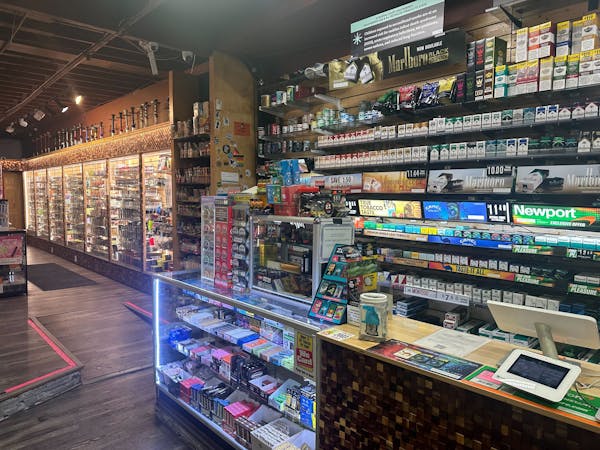True confession: I recently bought a bottle of Roundup, the grass and weed killer. Judging from the way I felt as I slunk up to the register to pay, I might as well have been purchasing illicit drugs.
No one frowned at me. The cashier happily took my money. But when I got home and picked up the Roundup to resume my annual battle with that evil garden invader, creeping bellflower, I turned the bottle in my hand so that if my environment-conscious neighbors happened to look out the window, they wouldn't see what I was carrying.
Silly, huh? But it's not just me. When I laughed about my behavior later that day with a group of Master Gardeners, two volunteered that they put Roundup in unlabeled spray bottles before using it.
Roundup, one of the commercial names for herbicides containing glyphosate, was once considered something of an agricultural miracle. Now some activists see it as the chemical equivalent of Satan, and its use has been connected to issues ranging from the decline in bee and monarch butterfly populations to causing cancer.
How things have changed. In the 1950s, chemicals were our saviors. On YouTube, there are black-and-white films of people merrily picnicking or walking down the street in the mist of DDT spray. When I was growing up in the 1960s, it was customary for gardeners of my parents' generation to automatically turn to chemicals to combat garden bug and disease issues.
Today, my yard is virtually chemical-free. I've learned that many insects do only cosmetic damage to plants and should be tolerated. Most weeds can be pulled. There's nothing wrong with fruits and vegetables that have a few spots on them. For home crops like apples that really need to be protected from pests, creating physical barriers like bagging fruit means you can stop insects without spraying.
But there's a place for chemicals. Digging up weeds and bagging apples is a lot of work. I'm perplexed by people on Internet gardening sites who demand organic solutions to their problems but reject the idea of actually going out in the yard with a dandelion digger. Some of the same people who call Monsanto "Satan" recommend using vinegar, damaging salts and even bleach in the yard. Those, too, are chemicals and they're not harmless.
Making peace with imperfection
So what's a responsible gardener to do? The lawn in my backyard, where I won't use weedkiller because that's where the dogs hang out, is spotted with dandelions and is rapidly being gobbled up by creeping Charlie. I let the dandelions flower — they're supposed to help pollinators — and then dig out as many as I can. It's a losing battle. Occasionally I use a stiff rake on the creeping Charlie, and I always pull it when it gets near the garden.
But I must admit I still enjoy having a lawn. There's a lot of lawn hate out there, but few things are better for capturing and filtering storm runoff around homes than a plot of green grass. And if you're not a stickler for perfection, there are low-input ways to maintain decent grass.
Although I tolerate weeds in the backyard, it bothered me this year to see dandelions proliferating in my front yard. I spent a few hours digging them out, only to see more pop up. I briefly considered putting a weed-and-feed on the front lawn, where the only person who walks on the grass is the postman.
I couldn't do it. I got out the mower and cut off the offending dandelion heads, and was happy to see a mostly smooth expanse of grass with those sneaky dandelions hiding low in the turf.
That will be my approach this year, along with continued digging of weeds, aeration this fall and applications of corn gluten meal to fertilize the grass and prevent weed seeds from germinating. It's an imperfect solution to something that bothers me, but it's one my conscience can live with.
'No chemicals!'
As I was using a spreader to apply organic corn gluten in the front yard, it was amusing and a bit exasperating to have a woman drive by and shout "No chemicals!" out her car window. Blindly assuming that all chemicals are evil must be reassuring. It is not very open-minded, though. And is it really any more sophisticated than dancing in the DDT mist?
Going chemical-free without letting landscapes run wild means planning and working hard. It means putting plants in the right place and knowing how much sunshine and water they need and other cultural requirements.
The University of Minnesota Extension Service has a lot of information about these sustainable landscape practices here: extension.umn.edu/garden/landscaping/
For me, maintaining my garden and yard as I want it means that a few times a year, I resort to using something like Roundup. I'll feel a bit guilty, but I'll do it to restrain creeping bellflower and quackgrass before they run wild.
I'll follow label directions, do it on a day with no wind and wear gloves. And I won't put it in an unlabeled bottle. Sometimes, a chemical like Roundup is the right tool for a difficult job.
Mary Jane Smetanka is a Minneapolis freelance writer and Master Gardener.
NPR suspends editor who criticized his employer for what he calls an unquestioned liberal worldview

Salman Rushdie's 'Knife' is unflinching about his brutal stabbing and uncanny in its vital spirit

